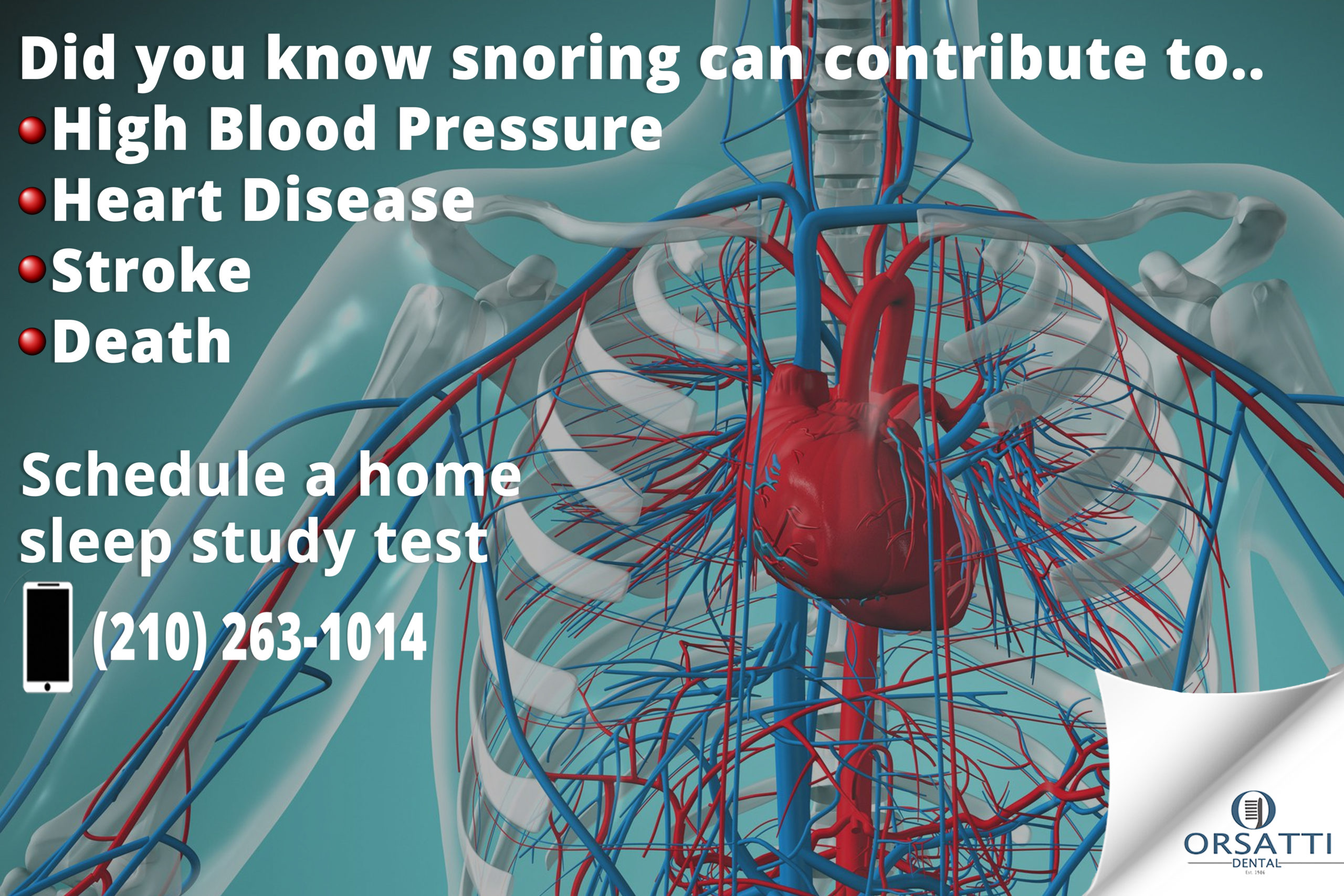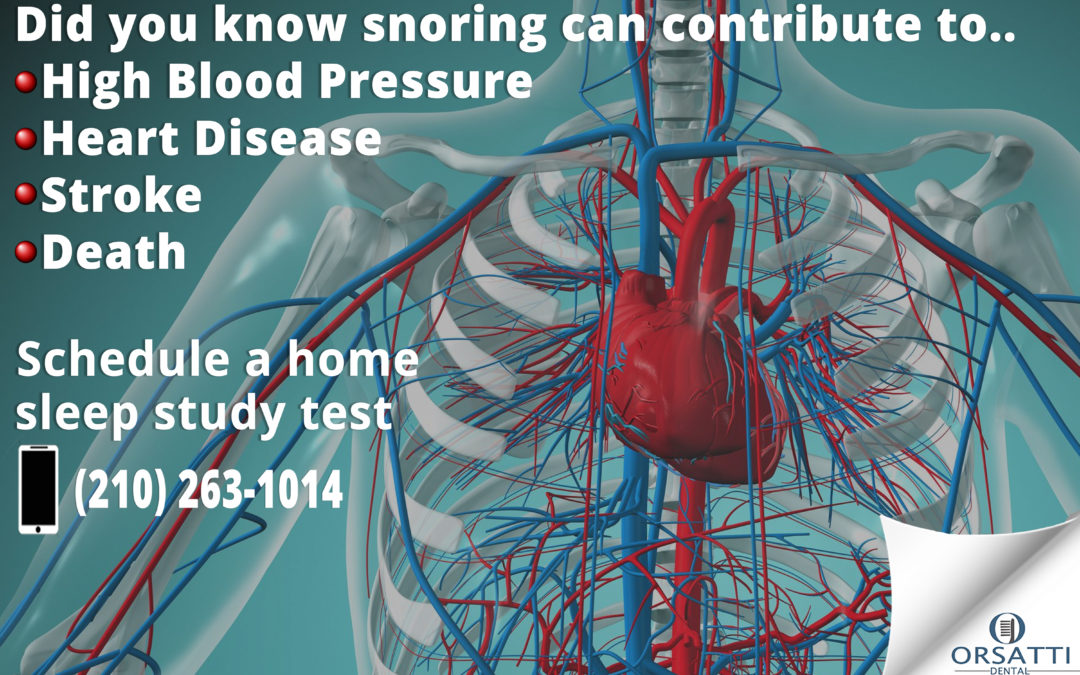Snoring Cardiovascular Disease
Snoring is often the sign of a condition called obstructive sleep apnea, which raises the risk for diabetes, obesity, hypertension, stroke, heart attack and other cardiovascular problems.
People with obstructive sleep apnea ( Snoring Cardiovascular Disease ) stop breathing for 10 to 20 seconds while they sleep; this can occur from a few to hundreds of times a night. Snoring doesn’t occur in every case of sleep apnea, and all people who snore don’t have sleep apnea, but anyone who is told they snore should consider obstructive sleep apnea as a possible cause.
Snoring is caused by the tongue not having enough room in the back of the throat, particularly in those people who are obese, in heart failure or sleep on their back. There are chemicals in the brain whose job is to trigger breathing, and these can fail in some people who snore. As a result, oxygen levels drop dramatically, causing cortisone, adrenaline and other hormones to surge.
These hormones contribute to high blood pressure and irregularities of the heart and can cause or exacerbate heart failure, trigger heart attacks, even sudden death. Even without snoring, people with obstructive sleep apnea have reduced oxygen in their system that can damage the heart.
Please call our office to schedule a home sleep study test.
Call Us Today:
(210) 263-1014
Risk factors and symptoms
We once thought obstructive sleep apnea was a disease of the obese, but we now know this isn’t true. While some people who are obese may have sleep apnea, other risk groups include:
-
People who drink alcohol or use sleeping pills
-
People with diabetes
-
Those with congestive heart failure
-
People in their 50s and 60s
-
Men more than women
As more people age, develop hypertension, diabetes or metabolic syndrome (pre-diabetes), the number of individuals with obstructive sleep apnea grows, which is very concerning to health providers.
People with this condition generally understand it is bad for their heart health, so it’s easier today to successfully encourage patients to see a sleep specialist than it once was.
Symptoms for the condition include:
-
Daytime fatigue or needing a nap
-
Falling asleep or being drowsy at odd times such as while driving or watching television
-
Snoring at night
-
Waking up suddenly from sleep gasping or choking for no apparent reason
-
Waking up with a dry or sore throat or a headache
-
Inability to focus
-
Not feeling refreshed in the morning
-
Choking on acid reflux during the night
Sleep Apnea, Obesity, and Heart Disease
Research suggests that obesity may play an important role in the development of both sleep apnea and heart disease. It is important to keep in mind that sleep apnea alone, with or without obesity, can increase the risk for heart disease. Sleep apnea and obesity independently increase the risk of health conditions that negatively affect heart health, like hypertension (high blood pressure), unhealthy cholesterol levels, and diabetes.
Obesity is a common cause of sleep apnea, often related to increased deposits of fat in the neck that narrow or block the upper airway during sleep. Researchers have found that even a 10% increase in body weight increases the risk of OSA by six-fold. While 60 to 90% of people with sleep apnea also have obesity only around 30% of people diagnosed with obesity have sleep apnea.
Sleep Deprivation and Heart Disease
Insufficient or fragmented sleep is common in patients with sleep apnea, and regularly missing sleep can negatively affect heart health. One of the many important roles of sleep is to allow the body to rest and recuperate. Heart rate and blood pressure drop during sleep as breathing becomes stable and regular.
Not getting enough sleep as a result of conditions like OSA means not giving the heart and cardiovascular system this important recovery time. Chronic sleep deprivation has been linked to increased risk for hypertension, heart disease, heart attacks, and stroke.
Sleep Apnea’s Effects on the Cardiovascular System
The repetitive pauses in breathing that characterize sleep apnea can stress and potentially damage not only the heart, but the whole cardiovascular system. While researchers are continuing to learn about the ways in which sleep apnea affects the cardiovascular system and contributes to heart disease, several biological pathways have been suggested.
Changes in Pressure Within the Chest
When a person with obstructive sleep apnea (OSA) attempts to breathe, they inhale against a narrowed or closed upper airway. These unsuccessful, forced inhalations can cause substantial changes in pressure within the chest cavity. Over time, these repetitive changes in intrathoracic pressure can damage the heart. Intrathoracic pressure changes can lead to atrial fibrillation (an irregular, often rapid heartbeat), problems with blood flow to the heart, and even heart failure.
Oxidative Stress
After each pause in breath, a person with sleep apnea once again inhales successfully. This inhale brings much-needed oxygen back into the lungs, blood, and body tissues. Unfortunately, frequent changes in oxygen levels can cause significant stress on the body, called oxidative stress. Oxidative stress can promote systemic inflammation, as well as neurochemical and physiological reactions that increase the risk of heart disease.
Please call our office to schedule a home sleep study test.
Call Us Today:
(210) 263-1014


